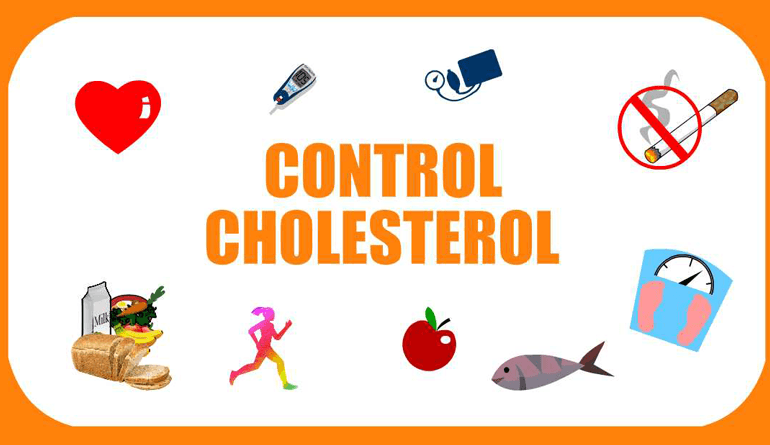High cholesterol is a widespread health issue impacting a large number of people across the globe. When left unmanaged, it can contribute to severe medical conditions such as heart disease, strokes, and elevated blood pressure. The encouraging part is that with proper lifestyle changes, high cholesterol can often be prevented and controlled. In this blog, we’ll explore the key causes of high cholesterol and share natural, effective ways to lower and manage it.
What is Cholesterol?
Cholesterol is a fatty, wax-like material that naturally exists in your bloodstream. Although it plays a crucial role in building cells, producing hormones, and helping the body make vitamin d, an excessive amount can be harmful. When cholesterol levels rise too high, it may accumulate along artery walls, forming plaque that narrows the arteries and limits the flow of blood.
There are two key types of cholesterol:
LDL(Low-Density Lipoprotein) is commonly known as “bad” cholesterol because having too much of it can lead to plaque buildup in the arteries, which increases the risk of heart problems.
HDL (High-Density Lipoprotein) – Known as the “good” cholesterol because it helps remove excess LDL from the bloodstream.
Maintaining a healthy ratio between LDL and HDL is important for heart health.
Causes of High Cholesterol
Many elements can motivate excessive cholesterol. Some are genetic, even as others are related to way of life behavior. Let’s discover the most common reasons:
1. Unhealthy Diet
Consuming foods rich in saturated fats, trans fats, and dietary cholesterol can lead to an increase in ldl (bad) cholesterol levels. Common culprits include fatty meats, whole milk and full-fat dairy products, fried foods, and packaged baked goods like pastries and cookies.
2. Lack of Physical Activity
A sedentary lifestyle can reduce HDL cholesterol and contribute to weight gain, which further worsens cholesterol profiles.
3. Obesity or Being Overweight
Carrying extra weight, especially around the abdomen, can increase LDL and triglyceride levels while lowering HDL cholesterol.
4. Smoking
Smoking harms the blood vessels and lowers the levels of HDLl, the good cholesterol that helps protect the heart. It also increases the stickiness of bad cholesterol, making plaque more likely to form.
5. Excessive Alcohol Consumption
Drinking large amounts of alcohol can raise triglycerides and worsen cholesterol levels, especially when combined with an unhealthy diet.
6. Genetics (Family History)
Some people inherit conditions such as familial hypercholesterolemia, a disorder that leads to dangerously high cholesterol levels even in young people.
7. Age and Gender
Cholesterol levels tend to increase with age. After menopause, women may experience a rise in LDL cholesterol levels.
8. Medical Conditions
Diseases like diabetes, hypothyroidism, and liver or kidney problems can impact how the body processes cholesterol.
Natural Ways to Prevent High Cholesterol
The most effective way to keep high cholesterol in check is by following healthy routines and keeping track of your levels through regular health checkups.. Here’s what you can do:
1. Eat Heart-Healthy Foods
Limit saturated and trans fats. Add plenty of fruits, vegetables, whole grains, lean proteins such as fish and legumes, and healthy fats like nuts, seeds, and olive oil to your meals. cut back on red meat, deep-fried items, and sweet snacks.
2. Stay Active
Try to get about 30 minutes of exercise on most days of the week.. Walking, swimming, cycling, or yoga can help improve cholesterol and heart health.
3. Manage Your Weight
Losing even a little body weight can lower your ldl and raise HDL levels. combine healthy eating with regular exercise.
4. Quit Smoking
Quitting smoking boosts HDL (good) cholesterol and supports better heart health. Benefits can begin as soon as 20 minutes after your last cigarette.
5. Drink Alcohol In Moderation
Limit to 2 drinks daily for men and 1 for women, if you drink at all.
6. Reduce Stress
Chronic stress affects cholesterol. Try meditation, deep breathing, or spending time with loved ones.
7. Monitor Cholesterol
For every 4–6 years get a lipid panel , or more often if you’re at risk. It checks ldl, hdl, and total cholesterol.
8. Take Medications If Advised
If needed, follow your doctor’s prescription for cholesterol-lowering medicines like statins—don’t stop them without medical advice.
High cholesterol may not show symptoms, but it can lead to serious health problems if ignored. The positive part is that high cholesterol can often be avoided by making smart lifestyle choices. focus on eating a balanced diet, staying physically active, steering clear of smoking, reducing stress, and scheduling regular health checkups. If lifestyle changes aren’t enough, your doctor may recommend medications to help manage your cholesterol levels effectively.
For added support, Kaigo Home Health Care provides professional in-home services like health monitoring, diet guidance, and personalized care plans to help manage cholesterol and improve heart health — all from the comfort of your home.
A simple change now can protect your heart for years to come.

